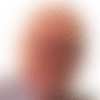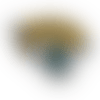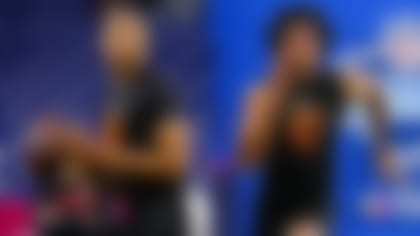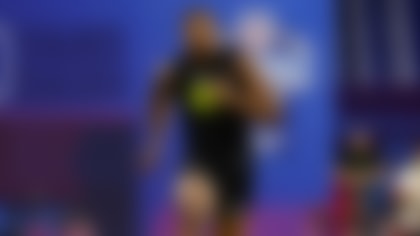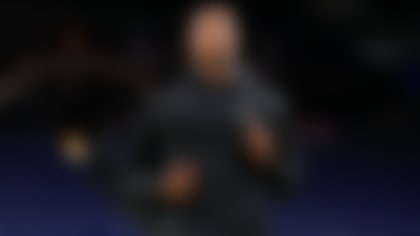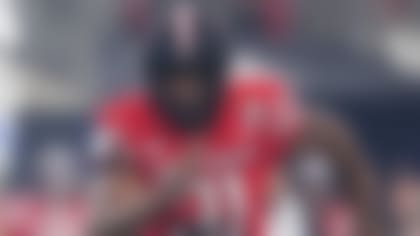I've heard the argument that grading draft picks immediately after they are made is worthless, but I don't agree.
Since no one can see into the future, these 2021 NFL Draft quick-snap grades only partially reflect how I expect a player's career to progress. These grades are, however, an evaluation of the process each team undertook to select the players they did. The grade also is an indication of whether I think a prospect's selection is of appropriate value given his college film and athleticism.
The reason these snap grades matter is that they give a real-time evaluation of the process. If a prospect is considered a great pick the day of the draft, but doesn't work out in the long run, that's a completely different evaluation of his new team's decision than identifying a player who was considered a reach at the time he was picked. Waiting three years to grade these picks leads to revisionist history, not an accurate evaluation of a decision that was based on what was known when the player was selected.
Draft pick
- Tulsa LB Zaven Collins (No. 16 overall)
Analysis: Collins is an all-around stud at linebacker. He will chase quarterbacks if required, plug holes in the run game and work in coverage much like Vikings four-time Pro Bowler Anthony Barr.
I liked cornerback Greg Newsome in this spot slightly more, however, because he's going to be an excellent player at a premium position where Arizona needs considerably more talent. Collins is also a strong prospect, though, so it's not a significant issue.
Draft pick
- Florida TE Kyle Pitts (No. 4 overall)
Analysis: There was a lot of talk about the Falcons taking a quarterback here, but in the end, the team decided to add the best non-quarterback in the draft. Pitts is a tight end, receiver and H-back all in one. Line him up with his hand down, in the slot, or outside -- wherever the play call and opponents’ coverage dictates.
Matt Ryan is extremely happy seeing Pitts, Julio Jones, Calvin Ridley and Hayden Hurst on the field with him. Slam dunk pick.
Draft picks
- Minnesota WR Rashod Bateman (No. 27 overall)
- Penn State OLB Odafe Oweh (No. 31 overall)
Analysis: No matter what the Ravens said publicly, it was clear they wanted to find additional receivers for 2019 MVP Lamar Jackson. Bateman has the build and quickness to play in the slot if that's what the team needs -- but he also would test defenses at flanker or split end. The more targets Jackson has, the better the team will be.
Baltimore used the first-round selection it received from Kansas City in the Orlando Brown trade on Oweh, an elite athlete who plays with physicality off the edge. People point to his zero sacks in 2020, but he did bring down quarterbacks seven times in 13 games the previous two years. The Ravens won't ask Oweh to dominate as a rookie, allowing him to mature behind Pernell McPhee, Jaylon Ferguson and Tyus Bowser. The upside is worth the risk this late in the first round.
Draft pick
- Miami DE Gregory Rousseau (No. 30 overall)
Analysis: The Bills are in a favorable position, as their roster is so well-built that they could sit back and allow the draft to come to them. Rousseau played only one full season of college ball, but looks exactly like the powerful and long edge rushers teams want. He moved inside at times at Miami, presenting the power and agility to be a difference-maker at the next level. I suspect this will prove to be an excellent pick in time.
Draft pick
- South Carolina CB Jaycee Horn (No. 8 overall)
Analysis: Horn's pro day workout won over a lot of teams that already appreciated the tenacity he showed on film. The son of former NFL receiver Joe Horn is exactly the sort of corner the Panthers needed to take on teams' outside receivers: tall, strong and physical. I like Patrick Surtain as the top corner in the class, but this is still a really good pick for a team looking to create a dominant defense to help new quarterback Sam Darnold rejuvenate his career in Carolina Blue.
Draft pick
- Ohio State QB Justin Fields (No. 11 overall)
Analysis: GM Ryan Pace and head coach Matt Nagy moved up nine spots with the Giants and sent a 2021 fifth-rounder and 2022 first- and fourth-round picks to get their future quarterback -- and I’m here for it.
Fields could wait his turn behind Andy Dalton in 2021, but I won’t be surprised if he becomes the starter before the midway part of the season. He is a leader and strong-armed passer who will give the Bears the difference-maker at quarterback that they have missed for many, many years.
Draft pick
- LSU WR Ja'Marr Chase (No. 5 overall)
Analysis: Chase is an excellent receiver, and reuniting him with former LSU teammate Joe Burrow could mean big things for the Bengals in the future. Chase's strength and quickness have made him the top receiver on most scouts' boards since the two Tigers destroyed defenses on their way to a national championship.
The problem? Cincinnati's offensive line is still not good enough to fully protect Burrow. The Bengals passed on former Oregon tackle Penei Sewell, who will be a dominant blocker in the league for years to come.
If the team picks up a great OT value at the top of the second round, I'll revise this grade. The draft is a marathon, not a sprint, and finding the right combination of tackle and receiver is key for Cincinnati.
Draft pick
- Northwestern CB Greg Newsome II (No. 26 overall)
Analysis: You can't have enough cornerbacks. Newsome should have been picked much earlier, so the Browns found excellent value picking him at No. 26. He has the size, strength and speed to match up against any NFL receiver. Newsome can also play the ball very well, fighting through the catch or making the interception when the opportunity arises. While the team could use inside linebacker and defensive tackle help, this pick really made sense with Zaven Collins and Jamin Davis off the board and this year's D-tackle class not getting high marks from scouts. They'll find value at those spots later in the draft.
Draft pick
- Penn State LB Micah Parsons (No. 12 overall)
Analysis: The Cowboys made a rare first-round, intra-division trade with the Eagles once the draft's two top cornerbacks went off the board. They picked up a third-round selection to move down just two spots.
Parsons will pound runners in the box and chase them to the sideline. He's not long, but he can do it all utilizing his quickness and powerful. Once again, teams allowed a strong linebacker to fall into the middle-third of the first round, a la Tremaine Edmunds in 2018. It won't surprise me if he joins Edmunds as a Pro Bowl selectee within three years.
Draft pick
- Alabama CB Patrick Surtain (No. 9 overall)
Analysis: It's interesting that the Broncos could have selected a top quarterback prospect in Justin Fields but chose not to pick him. If the team is stuck struggling because Drew Lock and Teddy Bridgewater can't get the job done, and Fields is succeeding with the Bears -- the decision will be second-guessed for some time.
Surtain is my favorite corner in the draft. He simply stops passes from reaching their intended targets. He is a strong press corner, and his ability to play the ball in the air is special. The Broncos invested in cornerbacks Ronald Darby and Kyle Fuller in free agency, but that didn't prevent them from making this pick. Don't overlook the fact that teams need four solid corners nowadays, especially given the potential for injuries at the position.
Draft pick
- Oregon OT Penei Sewell (No. 7 overall)
Analysis: There was no doubt in my mind that the Lions would jump at the chance to draft Sewell. I view him as a future All-Pro who will make new quarterback Jared Goff feel much more at home in Detroit. Offensive linemen that weigh 330 pounds simply aren't supposed to move like Sewell does.
He doesn't have plus length for the position, but you're not getting around this guy very easily. The Lions can play Sewell at either tackle spot. It had to be a no-brainer for the team -- and their palpable excitement visible in the draft room after the pick was made showed they were thrilled.
Draft pick
- Georgia CB Eric Stokes (No. 29 overall)
Analysis: Cornerback was a major need for the Packers, even after re-signing Kevin King. Stokes was in the first-round conversation even before his 4.29 pro day 40 yard-dash, thanks to his fluid hips and excellent ball skills. He can play in the slot or outside, so this was an excellent usage of the pick. I expect them to find another receiver and offensive line help in Rounds 2-4.
Draft pick
- None
Analysis: The Texans have no first- or second-round picks this year because of the trade for left tackle Laremy Tunsil from two years ago. Tunsil has played well for the Texans, but they simply gave up too much draft capital for a non-quarterback.
Draft pick
- Michigan DE Kwity Paye (No. 21 overall)
Analysis: Selecting Paye made sense for the Colts, who are looking for a difference-maker on the edge as a pass rusher and a run defender. He was 261 pounds at his pro day but could get back into the 270s if the team wants him to shift inside in third down sub packages as he did at Michigan. I am of a similar mind with my NFL Media colleague Charles Davis, who stated during the draft that it's hard not to think of former Wolverines Brandon Graham and LaMarr Woodley when watching Paye overwhelm tackles.
The team does have a need for a new left tackle with the retirement of Anthony Castonzo. But the falling stock of some of the top tackles in the class could allow the team to find one in the second round. And Paye's a top 20 prospect that they found at No. 21, so he offered good value.
Draft picks
- Clemson QB Trevor Lawrence (No. 1 overall)
- Clemson RB Travis Etienne (No. 25 overall)
Analysis: Lawrence's excellent all-around skill set screams "franchise quarterback." There is no such thing as a can't-miss prospect, but Lawrence's physical abilities and mental aptitude made this the absolutely correct pick.
Thursday night turned into a Clemson party in Jacksonville with the selection of Etienne, a very good back with top-40 value who could be explosive if his offensive line gives him gaps to exploit. His combination of power and speed is tough to stop once he gets those feet churning, whether Lawrence is handing him the ball or throwing it to him out of the backfield.
With James Robinson already in place, however, I would have expected them to go in another direction, such as the offensive line (Liam Eichenberg, Teven Jenkins) or receiver (Rashod Bateman). It never hurts to have quality depth at running back given the potential for injuries at the position, though.
Draft pick
- None
Analysis: It's very hard to fault the Chiefs for making the trade to acquire left tackle Orlando Brown, given the way the Super Bowl played out last season. Moving from 31 to 58 in this year’s draft and sending third- and fourth-round picks (with a late-round swap) was not a small price to pay for Brown, but the guy blocks out the sun and will help give Patrick Mahomes the time he needs to find targets downfield.
Draft pick
- Alabama OT Alex Leatherwood (No. 17 overall)
Analysis: I projected Leatherwood to go in the first round a month ago, so it wasn't surprising that his name came off the board on Thursday night. I did not expect him to get picked when Teven Jenkins (Oklahoma State) and Christian Darrisaw (Virginia Tech) were still on the board, though.
Leatherwood is a first-round value because of his intelligence, versatility and toughness. He'll play in the league for many years, and you won't have to worry about his maturity and work ethic. Just plug him in at tackle or guard and let him do his thing. We'll see in time if Darrisaw or Jenkins turn out to be better players in the end.
Draft pick
- Northwestern OT Rashawn Slater (No. 13 overall)
Analysis: Slater is not the tallest or longest tackle prospect in the draft, but he has the best tape. After all, he neutralized stud pass rusher Chase Young back in 2019. Slater plays with a nasty attitude and put up a highly impressive pro day, yet he could not convince teams he was worthy of a top-12 pick.
Their loss is the Chargers' gain, as Slater will protect Justin Herbert's blindside for the foreseeable future.
Draft pick
- None
Analysis: Jalen Ramsey is one of the top defenders in the NFL, and one of the few players for whom trading two first-round selections is appropriate. Now that the Rams have a quarterback they like, that superb defense could help them get back to the Super Bowl in the next year or two.
Draft picks
- Alabama WR Jaylen Waddle (No. 6 overall)
- Miami edge rusher Jaelan Phillips (No. 18 overall)
Analysis: Waddle is an explosive player who becomes the first receiver 5-foot-10 or shorter to go in the top 10 since Tavon Austin in 2013. The 'Bama wideout's midseason injury did not affect his draft status, either, in part because he showed great heart by playing in the College Football Playoffs National Championship Game despite an obvious limp.
This choice may have been between two teammates: Waddle and DeVonta Smith. If not for the ankle injury he suffered against Tennessee on a kickoff return, Waddle likely would have been the one hoisting the Heisman Trophy, not Smith.
Waddle’s extreme quickness from the slot and speed in the open field will certainly help his former Alabama teammate, Tua Tagovailoa, fully develop in Miami. But there is risk in taking a smaller receiver coming off injury this early in the draft.
Phillips was an excellent pick in terms of his on-field value. If not for his injury issues at UCLA that caused him to retire from football briefly before heading to Miami, he would have been picked earlier. He’s a powerful pass rusher who uses his strength to stack edge blockers and chase in the run game. Phillips is an all-around player who, if healthy, can be a quality starter immediately.
Draft pick
- Virginia Tech OT Christian Darrisaw (No. 23 overall)
Analysis: One of the least surprising moments of the first round was the Vikings trading out of the 14th overall spot once the Chargers selected Rashawn Slater at No. 13. Acquiring two third-round picks from the Jets (and sending back a fourth-rounder) to move down nine selections was clearly the right move, and looked even better when they found the left tackle they needed in Darrisaw at 23. Scouts did not like his inconsistency finishing plays, but he has the athleticism and strength to make it at the next level. His potential as a long-time starter at left tackle makes him a perfect fit for the Vikings.
Draft pick
- Alabama QB Mac Jones (No. 15 overall)
Analysis: Sometimes picks just make themselves. The Patriots didn’t have to make a move for a young passer, who many analysts projected would be a perfect fit in an offense that excelled for many years with a similarly pocket-bound, but accurate and quick decision-maker. Things couldn’t have played out better for Bill Belichick.
Jones’ average athleticism cost him some draft position, but if his receivers are in the right spots, he will deliver the ball effectively and let them be the playmakers.
Draft pick
- Houston DE Payton Turner (No. 28 overall)
Analysis: Turner was a solid player at Houston who has the combination of length and speed that the Saints wanted to add to their defensive line. This selection was earlier than I would have expected, but he gained momentum late in the process and worked himself into a Day 1 pick. There’s some potential there, we’ll see if the team can find it.
The Saints needed to find help at defensive tackle, linebacker or cornerback, but if they’re not sure how much longer Cameron Jordan will play or whether they'll re-sign Marcus Davenport after his rookie deal is over, then this pick makes more sense. Of course, Gregory Rousseau and Carlos Basham may turn out to be better picks ... we’ll see how it all plays out.
Draft pick
- Florida WR Kadarius Toney (No. 20 overall)
Analysis: I projected the Bears-Giants deal in my first-round trades article a few weeks ago, despite the Giants’ apparent reticence against moving down early in the draft. Getting a first- and fourth-rounder in 2022, plus a fifth-rounder this year, to move down nine spots wasn’t much of a decision for GM Dave Gettleman.
Toney’s quickness off the line of scrimmage is fantastic, and he looked like a first-rounder from the get-go during the 2020 season. Daniel Jones should find the former Gator to be a great slot target, combining with free agent acquisitions Kenny Golladay and John Ross to spice up the Giants' passing attack. Although Toney had a couple drops during Senior Bowl week, he was reliable during his Florida career, so I don’t believe that is an issue. And if you watched those practices closely, Toney separated from defenders in Mobile, Alabama, in a way that most receivers don’t.
Draft picks
- BYU QB Zach Wilson (No. 2 overall)
- USC OG Alijah Vera-Tucker (No. 14 overall)
Analysis: It’s been clear since October that Zach Wilson would be a very early pick in this draft. I can’t blame Jets GM Joe Douglas and new coach Robert Saleh for trading the former administration’s quarterback pick, Sam Darnold, to clear the way for their guy.
Wilson’s athleticism, accuracy and competitive fire are worthy of the No. 2 pick. He seems like a great fit in the “Shanahan East” offense Mike LaFleur, who came over from the 49ers with Saleh, is expected to run. With receivers Corey Davis, Denzel Mims, Jamison Crowder and Keelan Cole in hand, and one of the team's remaining picks likely to be used on a tight end, Wilson should be happy with his new targets.
But will he be better than Justin Fields or Trey Lance? Is Wilson’s feel for the passing game, his ability to find secondary targets in and out of structure, really better than the other two? Only time will tell whether any (or all) of the three passers becomes the all-around talent the Jets desired at this pick.
New York moved up nine spots to No. 14 to select Vera-Tucker, bolstering an offensive line desperately in need of help after a rough 2020 season. He should be a very strong starting guard who will bully defensive tackles in the run game and serve as a solid pass protector. I had to mark this trade down a bit, though, because giving up two third-round selections, even though they're receiving a fourth-rounder in return, was a bit much.
Draft pick
- Alabama WR DeVonta Smith (No. 10 overall)
Analysis: The Eagles wanted to add Smith so badly that they gave division rival Dallas a third-round pick (No. 84 overall) to move up two spots -- getting ahead of another rival, the Giants, in the process. They received extra picks in their trade down from the sixth spot earlier this month, so giving up the mid-round pick shouldn't greatly affect the team’s roster-building ability.
I love Smith’s game and would have selected him ahead of Jaylen Waddle. Forget what the scale says: the Heisman Trophy winner is tough and reliable, as well as a huge playmaker who will have a Davante Adams-type impact at the next level. His routes are fantastic as is his body control. He can play inside or outside. This is a well-done pick.
It’s the first time in 16 years a team has picked receivers in consecutive drafts (Chicago, Jacksonville in 2004-05), and I think Smith and Jalen Reagor should work well together to give Jalen Hurts a strong 1-2 combination.
Draft pick
- Alabama RB Najee Harris (No. 24 overall)
Analysis: I love Harris' game. He has power, agility, receiving ability and a strong work ethic. The Steelers really needed to find a special back in the Le'Veon Bell mold to diversify the offense and make the most of Ben Roethlisberger's remaining time in Pittsburgh. I figured Harris would be off the board by the time the Steelers picked, but I can't fault GM Kevin Colbert and head coach Mike Tomlin for taking this playmaker instead of addressing the offensive line.
Draft pick
- North Dakota State QB Trey Lance (No. 3 overall)
Analysis: The move up to the No. 3 slot last month was a clear sign the 49ers wanted to upgrade at quarterback. Jimmy Garoppolo has not been able to stay healthy for much of his time with the Niners. It was time to find another option.
Lance is an outstanding prospect who immediately came to mind when the Niners made that trade. His 2019 film (North Dakota State played only one game last fall), physical abilities and mental makeup will win the heart of San Francisco. Lance will be able to learn a pro offense quickly while also creating plays outside the pocket when things break down. This was the correct pick, whether Garoppolo stays for 2021 or not.
Draft pick
- None
Analysis: The jury is still out as to whether safety Jamal Adams' presence on the Seahawks' defense is worthy of sending two first-round picks to the Jets. The fact that they haven't signed him to a new deal doesn't make things any clearer. I can give a solid grade for this year's draft because Adams is a better player than what Seattle would have found in the No. 23 slot this year. The trade's grade will drop significantly next year unless the team's defense holds up its end of the bargain in a strong Super Bowl-contending season fueled significantly by Adams' play.
Draft pick
- Washington OLB Joe Tryon (No. 32 overall)
Analysis: Power is an undervalued pass rush commodity, and Tryon brings plenty of it. He has the strength, size and physical nature to play with his hand on the ground, as well, which means he can spell older Buccaneers Ndamukong Suh and William Gholston in sub packages. Tampa Bay really needed youth on the defensive line, and with Greg Rousseau off the board, Tryon or Carlos Basham were the top guys available. Tryon can rush the passer from a stand-up position, as well, so that versatility gave him the edge over Basham.
Draft pick
- Virginia Tech CB Caleb Farley (No. 22 overall)
Analysis: Tennessee found a top-12 talent available at No. 22, so it made the selection, despite Farley's previous back and knee injuries. The Titans have a big need at the position, and his size, length and smooth athleticism are fun to watch. At some point in every draft, teams must decide how much medical risk to take with their early selections. His upside as a playmaker makes him worthy of this selection.
Draft pick
- Kentucky LB Jamin Davis (No. 19 overall)
Analysis: Davis' athleticism won over the Washington Football Team. He is able to cover a lot of ground in space and tracks down ball-carriers with intensity. There is some risk taking a one-year starter, and Washington fans might also wonder if an offensive tackle like Teven Jenkins or Christian Darrisaw would have been the better pick. We'll also see if Davis or Jeremiah Owusu-Koramoah, who wasn't picked in Round 1, end up being the better coverage linebacker.
Follow Chad Reuter on Twitter.
